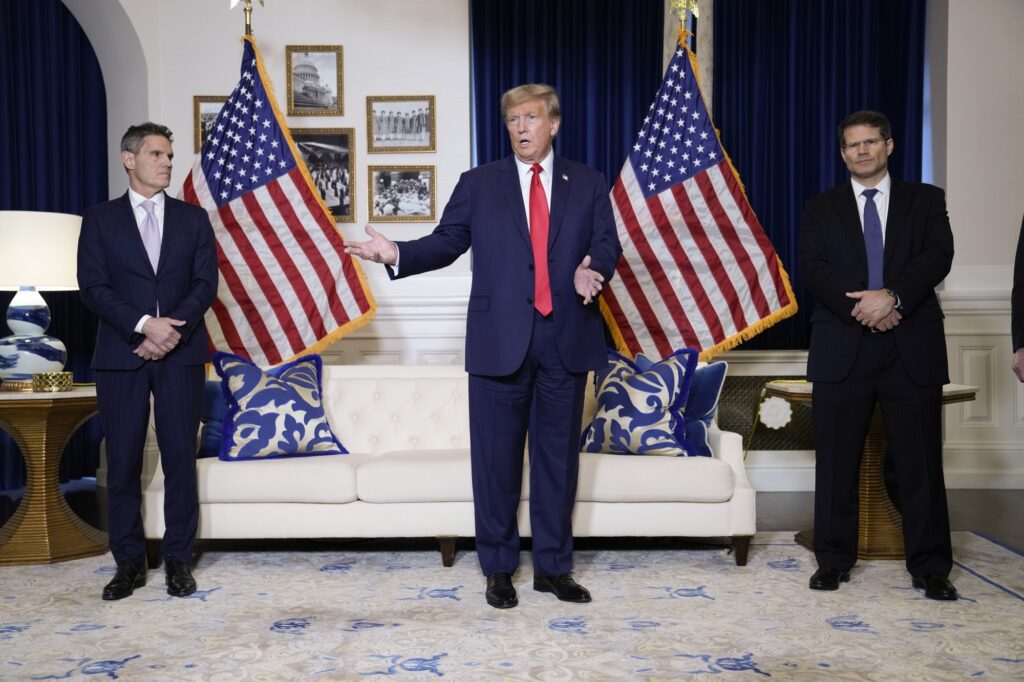New York Judge Enforces Trial Attendance, Complicating Former President’s Legal Strategies
Former President Donald Trump faces significant legal challenges as the New York judge presiding over his hush money trial ruled against his request to attend an upcoming Supreme Court hearing on presidential immunity. This decision underscores the complexities of balancing high-profile legal responsibilities against ongoing criminal proceedings.
On Monday, as the hush money trial commenced, Judge Juan Merchan addressed multiple requests from Trump seeking permission to be absent from the trial for other commitments, including a Supreme Court argument and his son Barron’s high school graduation. Trump’s legal team argued that his presence at the Supreme Court, scheduled for April 25, was critical due to the significance of the presidential immunity claim related to his federal criminal case. However, Judge Merchan emphasized the importance of Trump’s attendance at his ongoing trial in New York, ultimately denying the request.

In his decision, Judge Merchan highlighted the gravity of both the Supreme Court case and the New York trial, stressing the necessity for Trump to remain in court. The judge’s firm stance sets a precedent on the priority of ongoing local trials over other judicial matters, even those as significant as a Supreme Court argument.
Legal Tensions and Public Statements
The ruling led to immediate reactions from Trump, who expressed his dissatisfaction outside the courtroom. He criticized Judge Merchan’s decision, suggesting that it indicated a belief of being “superior” to the Supreme Court. Additionally, Trump commented on the unresolved issue of attending his son’s graduation, framing it as another example of what he termed a “scam trial.”
Trump also took the opportunity to criticize Manhattan District Attorney Alvin Bragg, who was present for the day’s proceedings. He implied that Bragg’s attendance at the trial was inappropriate given other public safety concerns in Manhattan, suggesting that the district attorney should focus more on street crime rather than the trial.
The charges against Trump stem from allegations that he falsified business records related to a hush money payment made by his former lawyer, Michael Cohen, to adult film actress Stormy Daniels. This payment was allegedly made to conceal an affair during the 2016 presidential campaign, a claim Trump vehemently denies. He faces 34 counts of falsifying business records, each count highlighting the complexities and potential legal ramifications of his actions during the campaign.
As the trial progresses, the process of jury selection is expected to be meticulous and possibly prolonged, reflecting the high-profile nature of the case. Legal experts predict that the selection process alone could take several days or weeks, given the need to ensure an unbiased jury in a case inundated with public and media scrutiny.
The intersection of Trump’s criminal trial and his Supreme Court case on presidential immunity opens a broader discussion on the limits and scope of protections afforded to presidents and former presidents. The Supreme Court’s eventual decision on this matter will likely have significant constitutional implications, potentially reshaping understandings of executive power and accountability.
The issue at the heart of the Supreme Court case — whether actions taken during a presidency can be shielded from criminal prosecution after a president leaves office — is a pivotal question. This decision could define the extent to which former presidents can invoke their previous office’s privileges to fend off legal issues.
Public and Political Reactions
Public and political reactions to the unfolding events have been polarized, reflecting deep divisions in American politics. Supporters of Trump view the trial and its associated legal battles as politically motivated attempts to discredit him and undermine his achievements. Conversely, critics argue that the legal proceedings are a necessary pursuit of justice and accountability, regardless of the individual’s political stature.
This polarization is evident in the media coverage and public discourse surrounding the trial, where differing interpretations of the same legal developments lead to contrasting narratives about justice, fairness, and political integrity.
As the trial continues, all eyes will be on the unfolding courtroom dramas and the Supreme Court’s deliberations. The outcomes of these legal battles will not only affect Trump personally but also have broader implications for U.S. legal and political systems. They will test the resilience of American judicial principles like the rule of law and the separation of powers.
Read More News:
- Legal Complexities and Human Tragedy: The Case of Virgilio Aguilar Mendez
- Legal Battles and Ballot Drama: Trump’s Rollercoaster Ride in Illinois Primary
In summary, the decision to bar Trump from attending the Supreme Court arguments marks a significant moment in his post-presidency life, encapsulating the challenges he faces as he navigates multiple legal battles. The coming weeks will likely add more layers to this complex legal saga, influencing public opinion and potentially altering the landscape of American constitutional law.
